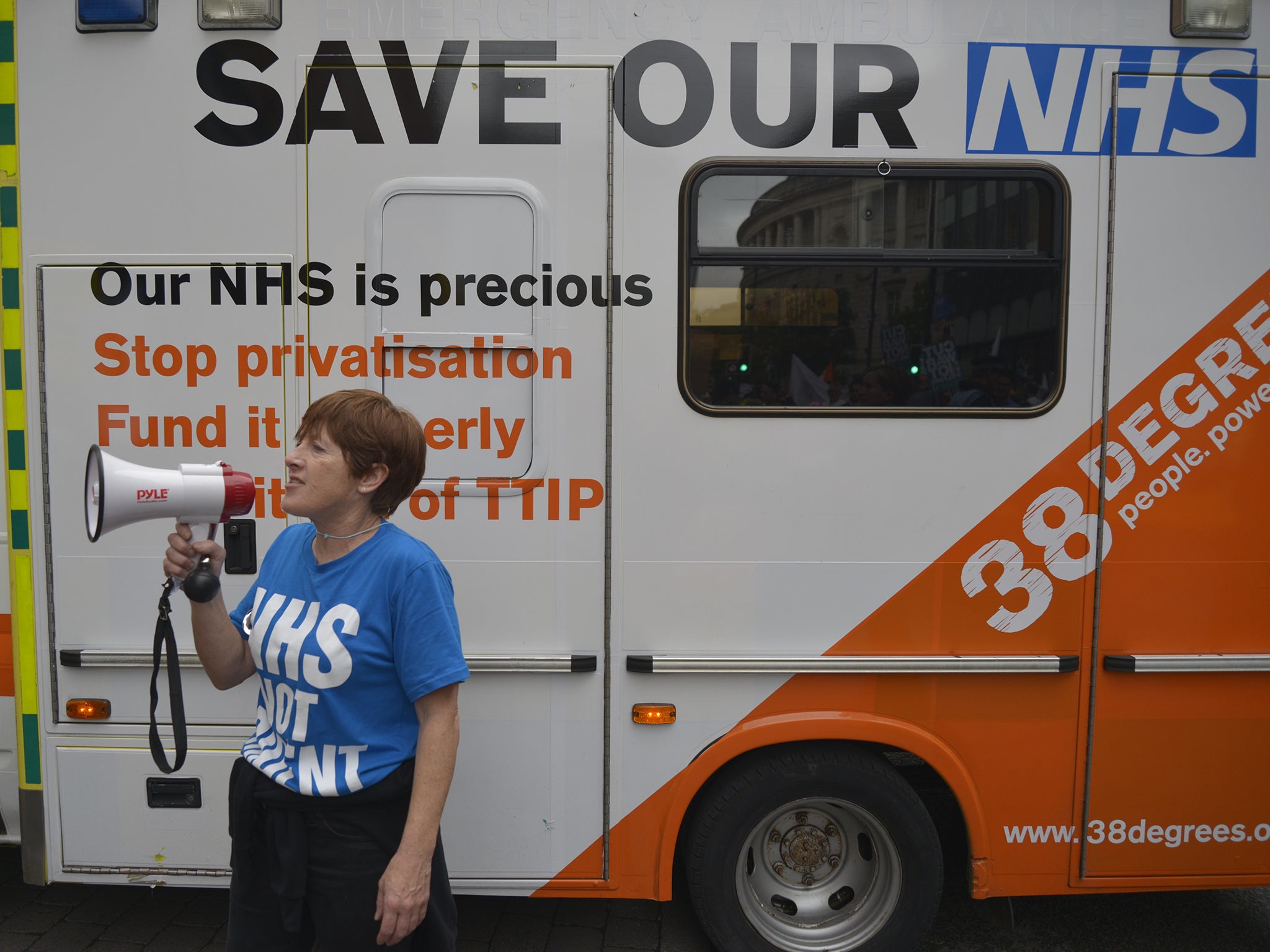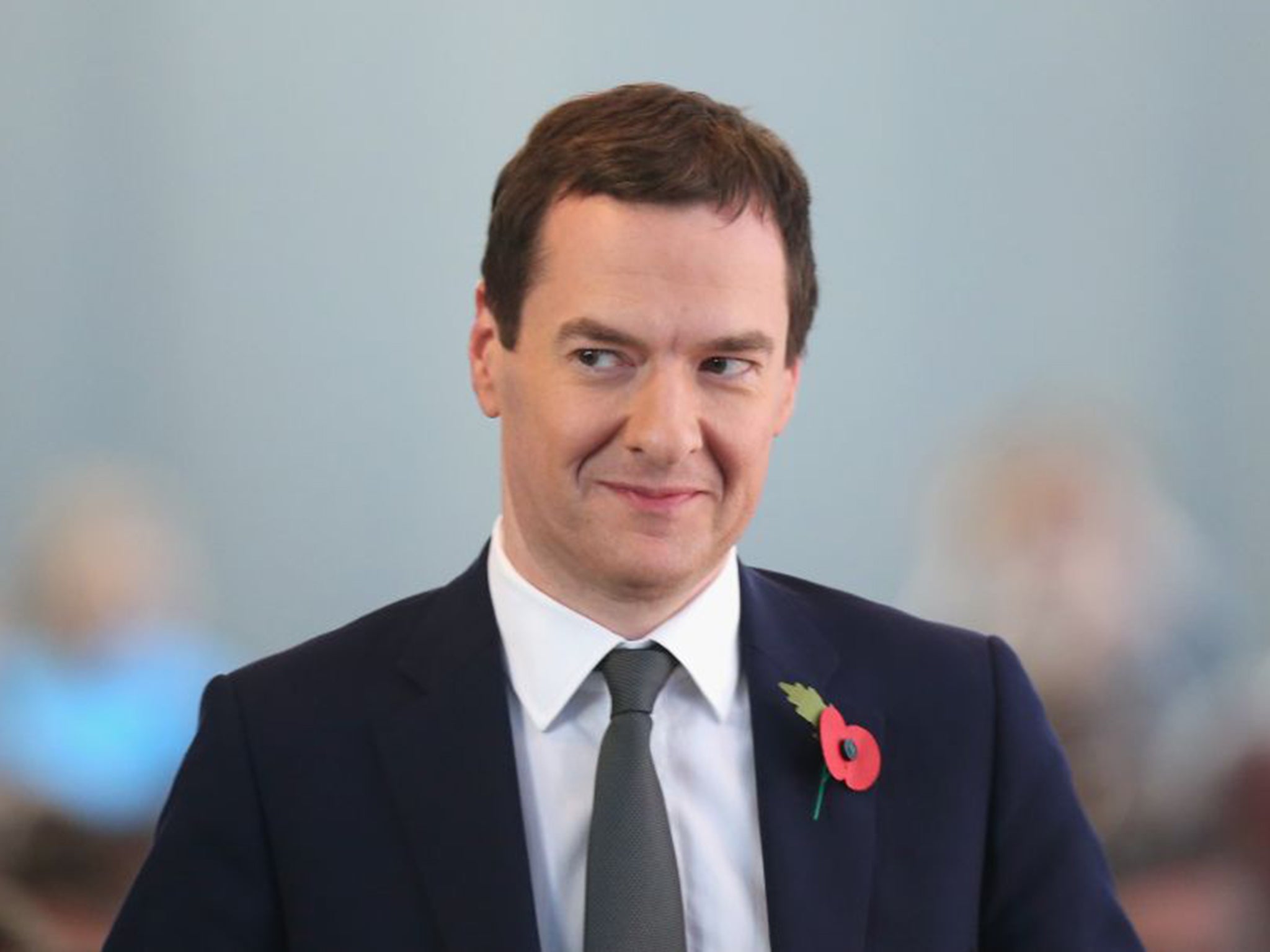George Osborne to fast-track £4bn NHS investment in bid to head off crisis
Chancellor will bow to demands from NHS managers and health experts to increase frontline spending

Your support helps us to tell the story
From reproductive rights to climate change to Big Tech, The Independent is on the ground when the story is developing. Whether it's investigating the financials of Elon Musk's pro-Trump PAC or producing our latest documentary, 'The A Word', which shines a light on the American women fighting for reproductive rights, we know how important it is to parse out the facts from the messaging.
At such a critical moment in US history, we need reporters on the ground. Your donation allows us to keep sending journalists to speak to both sides of the story.
The Independent is trusted by Americans across the entire political spectrum. And unlike many other quality news outlets, we choose not to lock Americans out of our reporting and analysis with paywalls. We believe quality journalism should be available to everyone, paid for by those who can afford it.
Your support makes all the difference.Frontline NHS services are to be handed an additional £4bn next year in an attempt to head off a growing financial crisis in the health service, George Osborne will announce on Wednesday.
The Chancellor will bow to demands from NHS managers and health experts and bring forward part of the £8bn NHS investment the Conservatives promised at the last election.
However, the fast-tracked investment is likely to put pressure on other areas of public spending such as policing, local government and transport whose budgets have not been ring-fenced in the Government’s Comprehensive Spending Review.
There are also concerns that while Mr Osborne is increasing spending on so-called frontline NHS services, other parts of the health budget that pay for things such as nurse training, hospital inspections and some aspects of public health could face cuts. It is also possible the social care budgets may again get squeezed if local council funding gets cut further. Nursing homes will also see their costs rise as they will have to pay the new national minimum wage.
Experts say that unless investment is put into social care and public health, any additional funding in hospital care would be eaten up by extra demand.

In addition, so far this financial year NHS trusts across England are running a total deficit of £1.3bn – so it is possible that a large chunk of the additional funding will simply go to pay off existing debts. This will give NHS managers less scope to use the money to invest in additional services to bring down waiting times that have been rising steadily over the past few months.
In his statement, Mr Osborne will claim that the Government is actually putting an additional £6bn into the NHS from April. However, Treasury sources confirmed that this figure included the £2bn that was given to the NHS as a “down-payment” in last year’s Autumn Statement. Mr Osborne insisted the new money would have a significant impact on the health service’s ability to fund seven-day-a-week services.
He claimed the additional funding would allow the NHS to offer 800,000 more operations and treatments, two million more diagnostic tests, 5.5 million more outpatient appointments and spend up to £2bn more on new drugs.
“We promised the British people that their priority was our priority, and we would fund our National Health Service,” he said.
Simon Stevens, the chief executive of NHS England who lobbied intensively for the additional funding to be paid upfront, said he was pleased. “This settlement is a clear and highly welcome acceptance of our argument for front-loaded NHS investment,” he said. “It will help stabilise current pressures on hospitals and GPs.”
Join our commenting forum
Join thought-provoking conversations, follow other Independent readers and see their replies
Comments